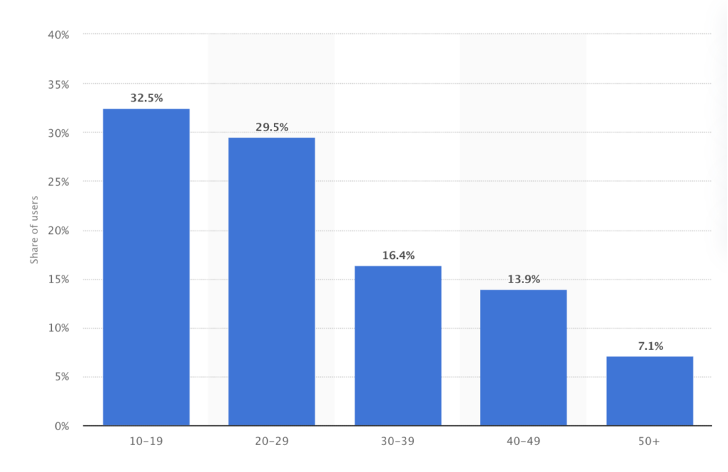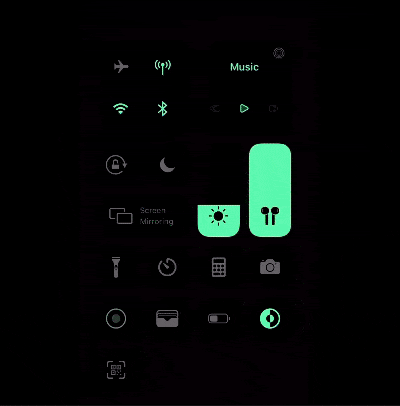
It’s a masterful, nefarious, geopolitical war.
It’s been going on for years…
And very few people even know it’s happening today.
Not only has it been dirt cheap to wage this war, it has already proven to generate billions in profit.
There is no need for troops, tanks, satellites, hypersonic missiles, or extensive covert human spy networks.
None of it is necessary when you have TikTok.
TikTok is a hot topic this week that — not surprisingly — has become highly politicized again.
Today, the U.S. House of Representatives voted on H.R. 7521, the Protecting Americans from Foreign Adversary Controlled Applications Act. It passed with flying colors: 352 votes for… and only 65 votes against.
While this might appear to be a U.S.-only issue, I assure you… it is not.
The issue at hand is a global one, relevant to the Western world and any countries considered by China to be an adversary.
Which is why TikTok is the center of attention today.
The bill specifically names TikTok as the key example of a foreign adversary controlled application. It states that:
The issue at hand is this…
China’s government owns a stake in Beijing ByteDance Technology Co. Ltd., known as ByteDance, which is the parent company of TikTok.
It also has one of three board seats on ByteDance.
But despite the ownership and board seat, the issue at hand is that China’s government has the ability to control TikTok through ByteDance.
Worse, “the Chinese Communist Party requires companies, like TikTok’s parent company ByteDance, to secretly share access to a U.S. business or individual’s data without their knowledge or consent,” according to the analysis of the Energy and Commerce Committee, which voted 50-0 in favor of the bill, thus sending it to the House of Representatives for a vote.
For those that aren’t familiar with TikTok, it is a ridiculously successful social media application, used by about 170 million Americans. (Note: The U.S. population is about 332 million.)
To say that TikTok has infiltrated the U.S. would be an understatement.
With that said, usage is not evenly distributed from a demographic standpoint.

60% of all U.S. users are female, and 60% are GenZers. And as we can see above, 62% are between the ages of 10 and 29.
For those familiar with TikTok, you’ll probably be disappointed to learn that users average 95 minutes a day on the app. It’s a very sticky app for those that use it.
Not surprisingly, the media intentionally misrepresented the bill as a “ban” of TikTok.
Their “story” right now is all about how unfair it will be.
If the bill is enacted, citizens and businesses would lose access to a vitally important means of communication.
The media spin, however, is inaccurate. The bill presents a way for TikTok to remain in the U.S.
If made into law, the bill states that ByteDance will have to divest from TikTok in the U.S., and any other software applications in use in the U.S., within six months of being enacted. The app can stay, but ByteDance — and the control of ByteDance by the Chinese Communist Party — has to go.
The press also leaves out the most important — and relevant — points regarding the Protecting Americans from Foreign Adversary Controlled Applications Act.
Specifically… that TikTok is being used to surveil U.S. citizens, collect data, send it back to Beijing, and use TikTok as a mechanism to influence elections, manipulate the U.S. population, and sew discord and strife among the population of China’s single largest adversary — the United States.
The cold truth is that TikTok is one of the largest psychological operations (psyops) in history.
I know that many of us don’t want to believe that something like this is happening. I’m sad to say that it is.
TikTok was specifically named last month in the Office of the Director of National Intelligence’s Annual Threat Assessment of the U.S. Intelligence Community. It’s not comfortable reading. To summarize:
Uncomfortable yet? I know I am.
This bill has nothing to do with freedom of speech.
It has everything to do with TikTok being a national security risk.
If you’re one of the many Americans protesting the TikTok “ban” this week, consider this…
TikTok may appear to be a simple, fun social media app. It’s designed to get users hooked quickly.
But the application was also designed as a data-collection application.
Any users that download TikTok will have the following information taken from our phones:
The Android OS version of TikTok even has coding that enables the downloading and execution of a remote file on our own phones.
And here is an easy to understand clip that shows all of the connections that TikTok establishes to remote IP addresses for sending and receiving information.
Only a few are necessary… which raises the question, what are the others for?

TikTok establishes these connections to servers in China and elsewhere to receive the data that is being stolen from our phones without out consent.
This information can be used to access our bank accounts, credit card theft, identity theft, or even using sensitive information in an effort to force someone to do (or not do) something.
To better understand the security risk of the underlying TikTok software, here are just a few things that the software is capable of doing, once it can access our IPs:
And if any of us have kids, or grandkids, this is the kind of information TikTok is collecting on them.
It’s the worst-case scenario. It’s the worst kind of spyware and malware that we could imagine.
I’m sad to say it gets worse from here.
Let’s put aside the obvious risks associated with what is mentioned above.
Arguably the most dangerous element of TikTok’s design is the massive psychological operation underway to control the way China’s adversaries think.
In particular, China’s focus is on the most naïve demographic in the U.S.: children and Gen Z’ers (those born between 1997-2012).
In great contrast to what TikTok looks like in the U.S., we might be surprised to hear that in China, the domestic version of TikTok is different than what is pushed around the world.
In China, TikTok limits children to just 40 minutes a day. And TikTok is used to show kids videos of science experiments that can be done at home, educational videos, patriotism videos, and videos of museum exhibits, as just a few examples.
China has been systemically clever and nefarious using TikTok. It’s playing the long game to manipulate the youngest and most naïve in Western society, as a way to influence culture and elections, as well as weaken the populations of its adversaries by pushing poison into younger generations that will impact their careers and life decisions.
The Center for Countering Digital Hate discovered that TikTok systematically pushes videos about eating disorders and self-harm to children. It’s aggressive, too. The research found that TikTok feeds this junk to kids every 39 seconds.
And yet, more than half of all GenZers now want to become a social media influencer, rather than a doctor, scientist, engineer, AI specialist, physicist, or any number of career choices that would be beneficial to society.
This is by design.
Despite the push by various U.S. government-backed programs to encourage more students to pursue careers in STEM (science, technology, engineering, mathematics), this is what has happened.
We’re losing the battle against a foreign adversary, while they are successful in increasing STEM in their own country.
And guess what? China bans all foreign social media applications in their own country. I wonder why?
China’s control over TikTok in the U.S. must come to an end.
Whether it is divested, or prohibited entirely, it is a national security threat.
India was smart to ban TikTok back in 2020. Other countries would be smart to follow.
We’re going to find out just how much control China has. The next stop is a vote in the U.S. Senate, and then, if passed, it will move to the President before being enacted into law.
Needless to say, no matter what happens, I strongly recommend against downloading and using TikTok.
New reader? Welcome to the Outer Limits with Jeff Brown. We encourage you to visit our FAQ, which you can access right here. You may also catch up on past issues right here in the Outer Limits archive.
If you have any questions, comments, or feedback, we always welcome them. We read every email and address the most common threads in the Friday AMA. Please write to us here.